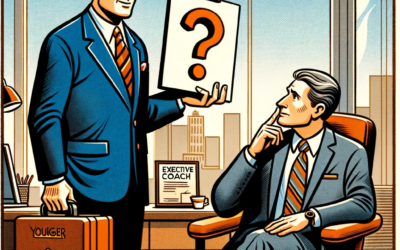Stop Asking
I asked a number of high-profile leaders when they shifted from information-gathering to making a decision. While there wasn’t uniformity among the responses, most leaders acknowledged the need to stop asking questions at a certain juncture.
Walter Isaacson, President & CEO of the Aspen Institute and former President & Chief Operating Officier of CNN, waits for about 60% of the input to come in, then stops asking questions and makes a decision. If you wait for everyone to respond, or all data to be assembled, you might miss your window to act. Besides, you don’t want to aggravate your coworkers by over-asking questions. If you do, they will eventually tire of your approach. On the other hand, you want to be careful not to give the impression that everyone’s input isn’t needed or welcome.
Tim Welsh, a Principal of McKinsey & Company, stops asking questions when the matter needs an immediate response or he simply runs out of time. If an organizational rule or guideline is breached, for example, he feels it should be addressed quickly. In that instance, questions might be used to establish the reason for the breach, but a quick and firm decision ensures the rule or guideline is upheld in the future.
Bob Senkler, CEO of Securian, believes that no answer is an answer. In other words, if an acceptable decision can’t be reached, a decision should not be made. If this is the case, however, those invested in the decision should be notified of the reason for the impasse.
Richard “Dick” McFarland, retired Chairman and CEO of Dain Rauscher, believes that a decision should always be made and relatively quickly—provided the stakes aren’t very high. His rationale is that the lack of a decision and the consequences of making the wrong decision are often less than inaction. “You can always change the decision as long as you’re not betting the farm,” says McFarland. “It is about small betting, not the whole farm, but maybe an acre here or an acre there.”
Organizations aren’t typically democracies. Decisions must be made and often by leaders. Your coworkers will expect consistency and fairness from you. When do you stop asking questions and make a decision? What’s your rationale and are your coworkers aware of it?




